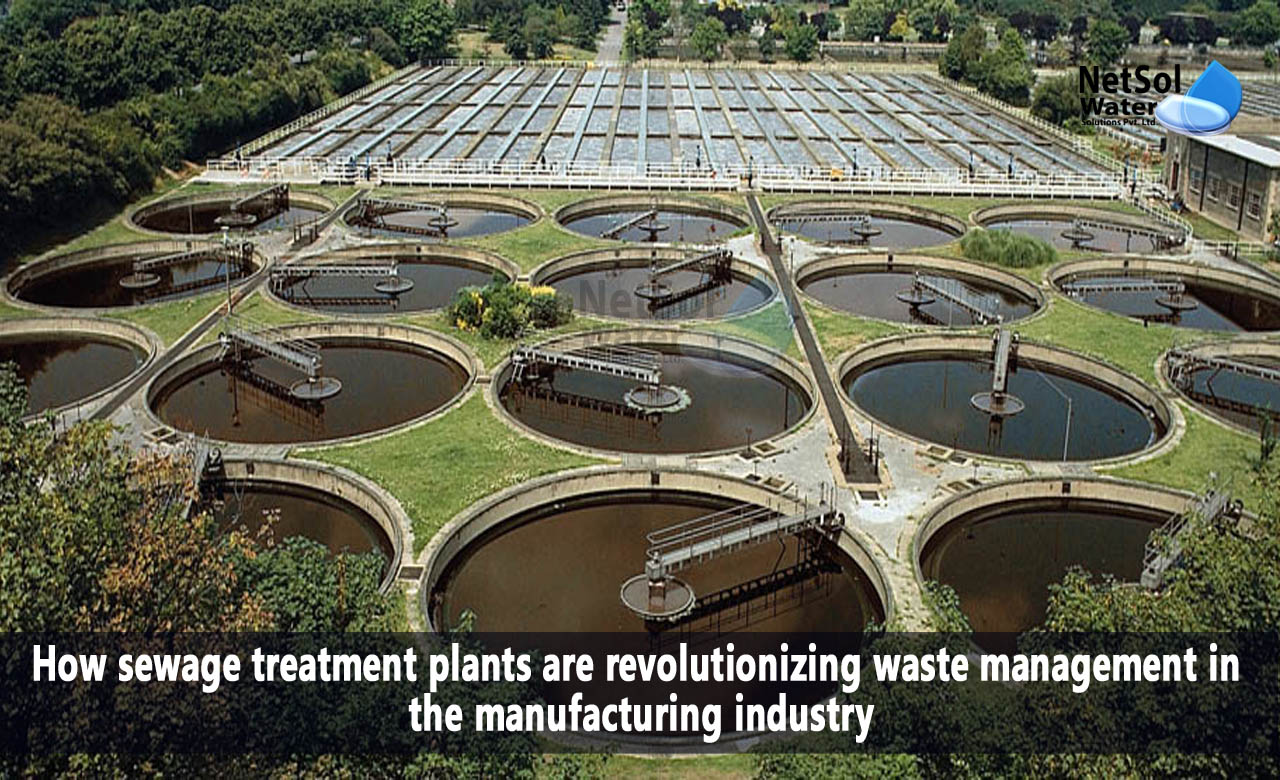How Sewage Treatment Plants are revolutionizing waste management?
The manufacturing industry plays a vital role in global economic development, but it also generates significant amounts of wastewater and byproducts that can pose serious environmental challenges. To address these concerns, sewage treatment plants have emerged as revolutionary solutions for efficient waste management in the manufacturing sector. By implementing advanced treatment processes and sustainable practices, sewage treatment plants are transforming the way industrial waste is handled, leading to a cleaner and more sustainable future.
In this blog post, we will explore how sewage treatment plants are revolutionizing waste management in the manufacturing industry and the benefits they bring to both the environment and businesses.
The Need for Effective Waste Management in Manufacturing:
The manufacturing industry generates diverse types of wastewater and pollutants, including heavy metals, chemicals, oils, and organic compounds. If not properly managed, these contaminants can harm ecosystems, water sources, and public health. The significance of implementing effective waste management practices in manufacturing cannot be overstated, and sewage treatment plants offer a comprehensive solution.
Advanced Treatment Processes for Industrial Waste:
Sewage treatment plants utilize advanced treatment processes to effectively remove pollutants from industrial wastewater. These processes often involve primary, secondary, and tertiary treatment stages, including physical, biological, and chemical treatments. By employing various technologies such as sedimentation, activated sludge systems, filtration, and disinfection, sewage treatment plants can efficiently remove or degrade harmful substances, ensuring the treated water meets stringent environmental standards.
Resource Recovery and Recycling:
One of the remarkable aspects of modern sewage treatment plants is their ability to recover valuable resources from industrial wastewater. Through advanced filtration and separation techniques, these plants can extract reusable materials, such as nutrients, organic matter, and energy. Nutrient-rich effluent can be utilized for agricultural purposes or converted into biofertilizers, while energy generated from biogas can be harnessed for on-site power generation. These resource recovery practices not only contribute to sustainable waste management but also offer economic benefits to manufacturers.
Compliance with Environmental Regulations:
Sewage treatment plants provide an effective means for manufacturers to meet and exceed environmental regulations governing wastewater discharge. By implementing these treatment facilities, companies can ensure that their operations remain in compliance with local, national, and international standards. Compliance not only mitigates legal risks but also demonstrates corporate responsibility and commitment to environmental stewardship.
Cost-Effectiveness and Operational Efficiency:
Investing in sewage treatment plants can lead to long-term cost savings for manufacturing businesses. By treating and recycling wastewater on-site, companies can reduce reliance on external water sources and minimize costs associated with wastewater disposal. Moreover, the recovered resources can be utilized within the manufacturing process, reducing the need for additional raw materials. These cost-effective measures, combined with increased operational efficiency, contribute to the overall sustainability and competitiveness of the manufacturing industry.
Building a Sustainable Reputation:
In today's conscious consumer market, sustainability has become a significant factor influencing consumer choices. Manufacturers that prioritize environmentally responsible practices, including the implementation of sewage treatment plants, can enhance their reputation and attract environmentally conscious customers. Demonstrating a commitment to sustainable waste management not only aligns with consumer expectations but also contributes to a positive brand image.
Conclusion:
Sewage treatment plants have revolutionized waste management in the manufacturing industry by providing efficient and sustainable solutions for industrial wastewater treatment. These plants not only ensure compliance with environmental regulations but also offer cost savings, resource recovery opportunities, and improved operational efficiency. As the manufacturing sector continues to grow, embracing sewage treatment plants as integral components of waste management strategies becomes increasingly crucial. By doing so, manufacturers can reduce their environmental footprint, protect ecosystems, and contribute to a cleaner, greener future for all.
Netsol Water is Greater Noida-based leading water & wastewater treatment plant manufacturer. We are industry's most demanding company based on client review and work quality. We are known as best commercial RO plant manufacturers, industrial RO plant manufacturer, sewage treatment plant manufacturer, Water Softener Plant Manufacturers and effluent treatment plant manufacturers. Apart from this 24x7 customer support is our USP. Call on +91-9650608473, or write us at enquiry@netsolwater.com for any support, inquiry or product-purchase related query.



